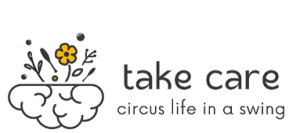Developed by PEARL and Codarts, the Performing Artist Health Monitor (PAHM) is an innovative online tool designed to support the physical and mental well-being of performing artists. PAHM collects both subjective and objective data to monitor health, workload, and recovery in real time. This data-driven approach helps identify potential health risks at an early stage and facilitates tailored feedback for performers and their support teams.
How PAHM Works
PAHM collects health-related data through customized surveys and wearable devices, and provides:
Tailored to the unique demands of performing arts, PAHM supports institutions including dance companies, orchestras, and circus organizations.
Research and Innovation
PAHM not only serves as a practical tool but also contributes to academic research. The high-quality data it generates supports studies on health and performance, helping to improve practices in performing arts. This project, funded by the Taskforce for Applied Research SIA, has received accolades, including recognition as the best applied research project in the Netherlands.
Performance anxiety is a challenge faced by many musicians, particularly in high-pressure settings such as auditions and concerts. For musicians, learning to manage this anxiety is crucial, but it is difficult to practice in front of an audience without the stakes becoming too high. When musicians are given a chance to perform, the environment is often not conducive to experimenting with anxiety-reducing techniques, leading to a cycle where they cannot fully develop the skills to manage their stress during performances.
At PEARL and Codarts, we understand that managing performance anxiety is essential for the success of musicians and other performing artists. That’s why we have developed the Performance Lab, a unique virtual platform where performing arts students and professional musicians can practice performing or auditioning in front of a simulated audience. The use of virtual environments has been shown to be an effective tool for easing performance anxiety. These digital settings offer musicians the opportunity to practice their skills in a realistic yet risk-free environment, enabling them to experiment with various techniques to reduce anxiety without the fear of negative consequences.
PEARL has already expanded the lab’s scope, offering similar opportunities for other performers, including those who need to practice public speaking or presenting in front of an audience.
This innovative project is funded by a Comenius Research Fellow grant of NRO. The lab builds on initial developments made by the Royal College of Music. As PEARL continues to refine and grow the Performance Lab, we are excited about its potential to support performing artists and students in overcoming performance anxiety and achieving their full potential on stage.
Excellence and success define the world of performing arts, but the high physical and psychological demands on artists make them especially vulnerable to health challenges. Maintaining optimal health is essential for unlocking their full potential and achieving professional success. To meet this need, elite performers require access to health literacy, top-tier health care, and evidence-based training practices. However, the role of structured teamwork and a supportive environment in achieving these goals is often underestimated.
PEARL addresses this gap with the Team Around the Artist (TATA) model—a multidisciplinary approach that integrates scientific insights into health care for dancers, musicians, circus artists and (performing arts) students. By structuring health and performance programs tailored to the unique needs of dance companies, orchestras, performing arts universities, and other institutions, TATA ensures that elite performers receive the best possible support.
Key features of the TATA model:
The TATA Tool
In addition to its model, PEARL offers the Team Around the Artist tool, a multidisciplinary health record system designed for health professionals working with performers and performing arts students. This tool facilitates secure communication, collaboration, and documentation, enabling teams to deliver coordinated, personalized care that promotes the physical and mental well-being of performing artists.
The TATA project is funded by a SPRONG grant from the Taskforce for Applied Research SIA.
Musicians, especially those in training, face intense physical and mental demands. Extended practice hours and complex techniques can lead to musculoskeletal issues, mental fatigue, and performance anxiety. These challenges are especially significant for pre-professional musicians striving for excellence during their education.
At PEARL, we recognize the importance of addressing these concerns early. In collaboration with the Classical Music Department of Codarts, a PhD project has been launched to explore the extent and nature of health issues in conservatory students.
The study focuses on:
Impact and Applications
The findings of this research will directly inform the development of targeted preventive measures and support systems. By identifying health risks at an early stage and tailoring interventions, conservatories can better protect their students' well-being and ensure their long-term career success. Insights from this project will also empower educators to foster healthier learning environments.
A Collaborative Effort
This project is made possible through the support of Codarts Rotterdam and funding from the Taskforce for Applied Research (SIA). It reflects PEARL’s and Codarts’s commitment to bridging the gap between research and practice in the performing arts, emphasizing the importance of proactive health care for young musicians.
The Dance Aerobic Fitness Test (DAFT) is a field-based assessment tool specifically designed to measure the aerobic fitness of dancers in a way that reflects the physical demands of dance performance. The results of the DAFT helps dancers and their staff optimize aerobic fitness levels required for performance while minimizing the risk of fatigue-related injuries.
This PhD project aims to refine, validate, and expand the applications of the DAFT through:
By providing an accessible and dance-specific fitness test, the DAFT bridges a critical gap in dance science. The outcomes of this PhD project will contribute to evidence-based practices for training and health management in dance, empowering educators, choreographers, and dancers to make informed decisions for peak performance and well-being.
Potential applications
This project is funded by Codarts Rotterdam and will further establish the DAFT as an indispensable tool for fostering sustainable careers and enhancing the longevity of dancers' physical and artistic capabilities.
TAKE CARE aims at preventing mental health issues in the contemporary circus arts sector by training students and professionals on the topic, by raising awareness about mental health, and by facilitating the exchange of good practices in caring for young artists. Furthermore, the project will gather evidence, as well as collect and disseminate tools and resources to help the sector evolve structurally, towards more conscious and sustainable models.
TAKE CARE is led by FEDEC – International network for professional circus education (BEL) in partnership with Codarts Rotterdam University of the Arts / PEARL (NLD), the CircusDanceFestival (DEU), Filip Jacobson Film (DEU), Miikkael Christoffer Kukkula (FIN) and Around About Circus (DEU). TAKE CARE is a European project co-funded by the programme Creative Europe of the European Union. For more information, visit www.fedec.eu


